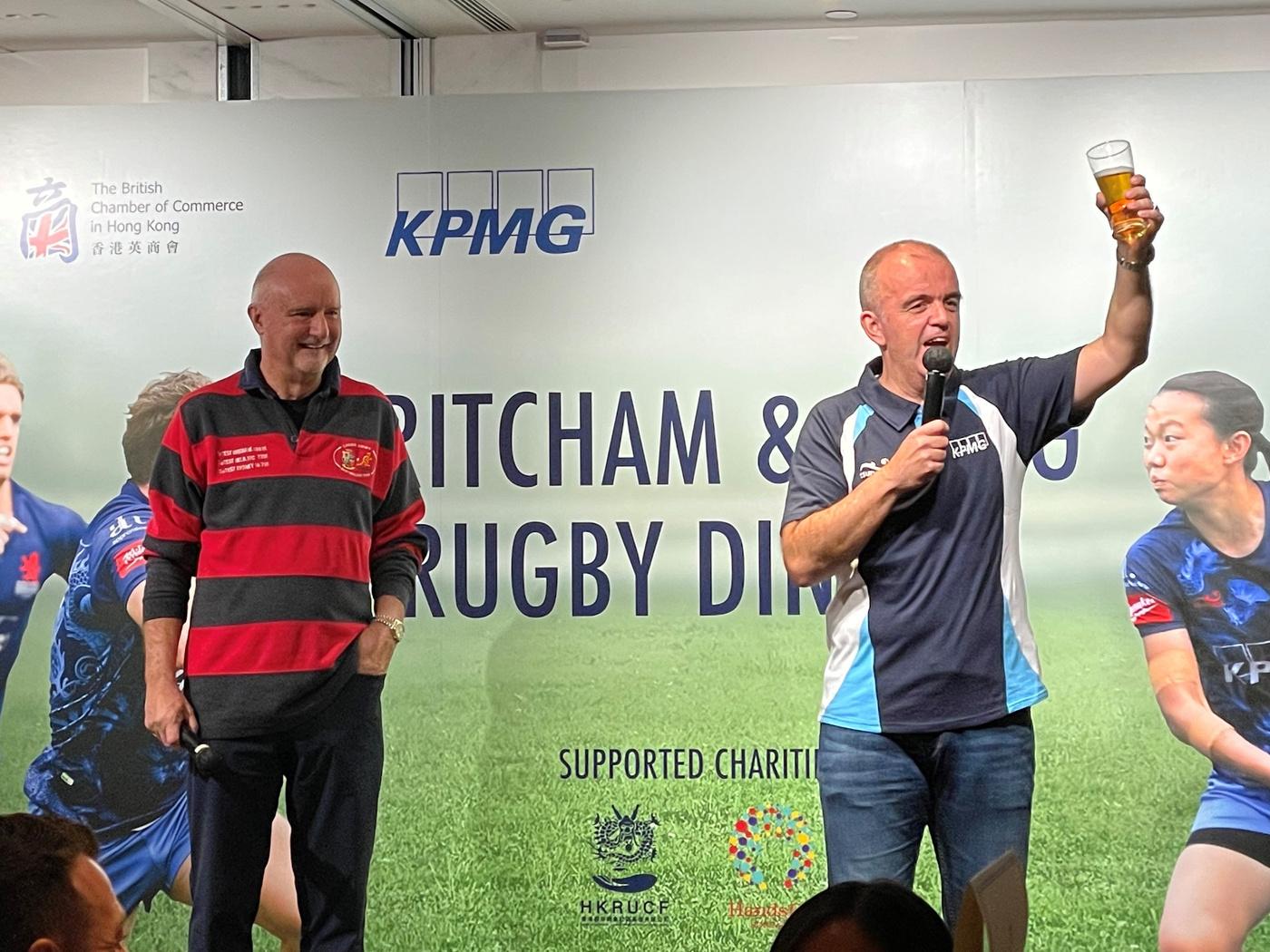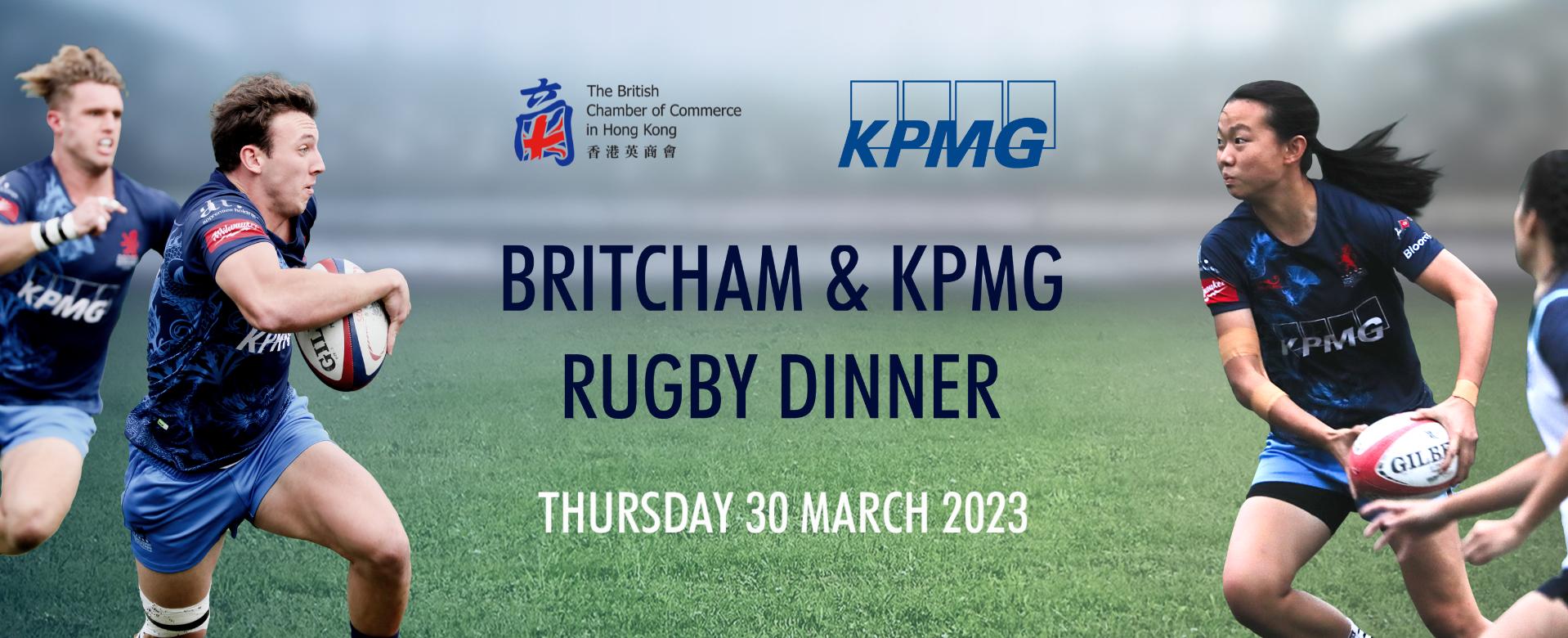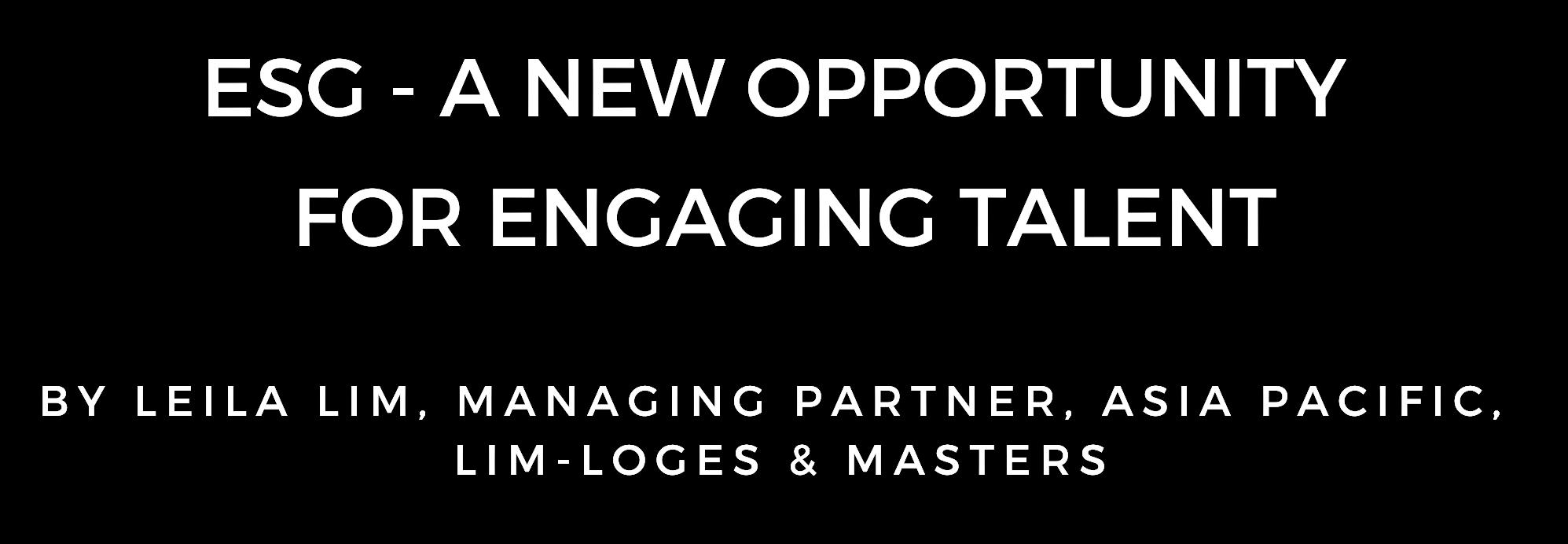




"SLAPP BACK”: 5 ESSENTIAL UPDATES YOU SHOULD KNOW ABOUT SLAPP LAWSUITS
In the last couple of months, we have surely seen Hong Kong commence its “bounce back” with increasing fervour. We have seen a steady stream of visitors metaphorically and physically knocking on our door, both from a business and a leisure perspective. The message is clearly about “seeing is believing”. Many of those who have visited recently have taken away messages that business is back While there may be different distances to travel depending on the sector, there is a feeling that we need more to “come, see, and perhaps stay to enjoy the opportunities”
As I noted in my previous address, I am keen to engage with the wider membership in both the business context as well as that important sense of connection and community we enjoy as a Chamber of Commerce. We are looking to bring a variety of exciting activities and events in the months ahead.

Together with our Executive Director David Graham, Vice Chairs Jeremy Sheldon and James Turner, and Treasurer Paul McSheaffrey, we are endeavouring to get around the committees and membership to understand the wider market sentiment, the opportunities and the hurdles being experienced as we move away from restrictions
To this end, it is really helpful for us to meet with colleagues of member firms and organisations as they visit Hong Kong, and to meet new potential members where we can do what we set out to do and “get business done”
With the opportunities in mind, we are focusing much attention on outcomes and actions with respect to the Greater Bay Area (GBA). Committees are considering how to shape agendas and activities xxxxx
around the opportunities for the benefit of members.
Christy Ng, our Business Policy and Corporate Relations Manager, and Tommy Han of Prudential and Chair of the China Committee, represented the Chamber in a recent visit to Guangzhou, Shenzhen, Zhuhai and Dongguan in the GBA organised by the Ministry of Foreign Affairs. Representatives from foreign Consulates, other Chambers in Hong Kong, and multinational and financial institutions were among those in attendance
The trip consisted of banquets hosted by officials of the Guangdong Province and the four cities Christy and Tommy have shared that they were impressed by the progress in the GBA, the companies and officials they met, and the aspirations for each city. They also had the chance to visit various large and smaller corporations in industrial parks and of the cities, such as Tencent, Huawei, Gree Co. Ltd, iFlytek. These corporations step across very different industries, including technology, healthcare and biotechnology, intelligent speech and AI, home appliances, aeronautical engineering, conservation and environment protection, etc
This has been an eye-opening journey for them after years of travel restrictions, and has certainly ascertained our views that the GBA embodies potential to become a world-class top bay area and provide great opportunities to businesses With the contacts they both made during the trip, we look forward to keeping in touch with local officials to see how Hong Kong can further amplify its role in the region. We will stand ready to continuously promote Hong Kong as the “super-connector and gateway" of the Mainland and the world.
Upon Tommy's return to Hong Kong, he noted,
“Clearly driving economic growth is back at the top of the local agenda, and I’m impressed with the cities’ keenness to attract international investment

We shall make the most of the window and seize business opportunities as market integration progresses in the Greater Bay Area ”
As for Christy, she indicated that
"If opportunities in the Mainland are the fruits, then Hong Kong is the ladder. Don't just look for low hanging fruits, climb up the ladder to reap them all."
Events undertaken in the last couple of months included the very successful BritCham Social Sustainability Symposium on 23 February 2023, which was attended by over 120 participants and focused on sharing good practices and opening dialogue around social sustainability We had an excellent presentation from Matt Friedman of The Mekong Club, who shared shocking statistics (among other things) about the fact that over 40 million people are subjugated in modern slavery in the world today. This has to be a key issue for all –not just in terms of ensuring our businesses are not contributing to or engaging in practices or activities relating to modern slavery, but also ensuring we know how to identify and avoid it
In the last edition, I highlighted the Women in Business Committee held an event for an Asian Comedy Premier of PIVOT which has now been launched This is a pilot series on unconscious or otherwise biased behaviour in the workplace It is sometimes amusing, sometimes toe-curling, and very much on the mark in terms, according to many who have watched the short 4 x seven-minute PIVOT web series. Worth a watch if you have anything to do with people, promotions, or behaviours in the workplace.
Our advocacy work continues with meetings in Hong Kong with Government officials, as well as informal meetings when I was recently in London with organisations related to Hong Kong The level of engagement is good, and we continue to provide inputs and suggestions to the Government in connection with the Policy Address, the budget, and other business opportunities that evolve from the various Committees and their members
March bounded in like the proverbial March Hare, and was an incredibly busy and uplifting month in terms of activities, including but not limited to the Literary Festival which our Chair of Creative Industries co-hosted, the various celebrations for the 75th anniversary of our ex-officio member the British Council – congratulations, and the irrepressibly
exciting Rugby 7’s Thank you to KPMG for cohosting the BritCham & KPMG Rugby dinner which was enjoyed by all who attended. The general cry was “it’s great to be back” from many stalwarts who returned to the city for the weekend, and in some cases fitted in a few business meetings as well.
Earlier in March, I met with organisations and associations while I was on a business trip to London. Key messages were around “what can we do to help businesses flourish in Hong Kong and ensure the opportunities are articulated in many sectors, traditional and sometimes new” Ideas are forming and will be shared as they unfold
Just to give a heads up for the diary, planning is well underway for the annual British Chamber of Commerce Hong Kong Summit, which will be held on 26 October 2023 Please mark your diaries with the title “Hong Kong Rebound”. Between now and then, there will be many activities, opportunities to connect and engage, so keep tuned in and stay connected.
Last but not least, there are changes afoot at the Chamber David Graham, our Executive Director since 2020, will be retiring on 1 June 2023. He is leaving for family reasons but assures us he is planning on spending a significant amount of time in Hong Kong in the future. On behalf of the entire membership, the Executive team, and the General Committee, I wish to thank David for his steady, calm and very thorough approach to managing the Chamber through difficult times – an enormous challenge that you managed extremely capably With every best wish for the future, we offer a warm welcome to David’s replacement, Paul McComb, whom many of you will already know Paul will be returning to Hong Kong albeit in a different capacity, and will be taking up the mantle of the Chamber as Hong Kong bounces back We look forward to introducing members and seeing Paul reconnect with old friends and associates
Thank you.
 Ir Dr Anne Kerr Chair
Ir Dr Anne Kerr Chair
The British Chamber of Commerce in Hong Kong

As many of you know, I will be retiring from the role of Executive Director of the Chamber at the end of May It has been an enormous privilege (as well as great fun) to have the role and I will look back with pride at my time with the Chamber. The last three years have not been the easiest for the Chamber – or indeed for Hong Kong, or the world more generally – but throughout the Chamber has done what it does best and has come through with a strong reputation, an outstanding group of members and a solid financial position. The future looks very bright.

I would like to thank the two Chairs of the Chamber during my period as Executive Director – Peter Burnett OBE , BBS and Dr Anne Kerr – for their wise counsel and vision; the Executive Committee for their unstinting support and commitment; the Committee Chairs and Vice Chairs for their strong leadership; the Executive team for all their hard work and dedication and making it a pleasure to come to work every day; and the Chamber members for their continued and excellent engagement and support.
There have been many highlights over the last three years – the Summits organised in 2021 and 2022 with another planned for 2023, which have now become an annual flagship event for the Chamber; the Symposiums on Healthcare, Infrastructure and Social Sustainability; our Policy Address and Budget submissions, as well as our detailed submissions on the Greater Bay Area and many other topics important to our members and Hong Kong;the introduction of our Community Outreach program, joining with HandsOn Hong Kong; the establishment of a nascent Creative Industries Committee as Hong






Kong looks to build out its first class offering as an international hub for arts, sport and culture; and the award in 2021 of International Chamber of the Year by the British Chambers organisation, to name but a few. Of course, the COVID restrictions have meant that there have been periods when it was not possible to hold as many social and networking events as we would have liked – for instance, we have not held our highly enjoyable annual Ball during my time as Executive Director – but we were able to continue to host our Christmas Cocktails, our quiz night, our event around the Rugby Sevens (twice in six months) and recently our networking drinks Expect more social events in the future
We have continued to build on our relationships with key stakeholders – in Hong Kong, on the Mainland and in the UK – so as to be able better to represent the interests of our members We have managed to continue our annual “doorknock” to the UK where we meet with UK Government and other officials as part of our mission to provide on the ground feedback on the business opportunities in Hong Kong; and increasingly have interacted with the Chinese Ministry of Foreign Affairs and the China Liaison Office to express the views of our members on the business environment on Hong Kong. In all these interactions, we have stayed away from politics or expressing views on political matters –our focus has been solely on the business agenda of our members


I am excited about the Chamber’s future, as I am about the future of Hong Kong I wish my successor, Paul McComb, every success in the role I strongly believe that the Chamber will continue to be an influential voice for business in Hong Kong and I look forward to keeping in touch with many of you in the coming years. The Chamber has made me many friends – and I hope those friendships will be long lasting.


With all my very best wishes
 David Graham Executive Director The British Chamber of Commerce in Hong Kong
David Graham Executive Director The British Chamber of Commerce in Hong Kong






In less than six months, the Chamber partnered again with KPMG to co-host another annual Rugby Dinner. This lively event is held at Hong Kong Football Club, kicking off right after the final of the world famous HKFC 10s Tournament. We were delighted to see a massive turnout, all for a good cause.








A stellar line-up of rugby stars spoke at the event with HKRU CEO Robbie McRobbie as our guest MC. It was our absolute pleasure to hear Jodie Ounsley's remarkable story in a fireside chat with Former HKRU Director of Women’s Rugby Kim Ka Kei Kan, and a delight to have Greig Laidlaw, Jamie Roberts, and Simon Shaw MBE share some of their hilarious stories from tour life.
The BritCham & KPMG Rugby Dinner is not only cause for celebration of the Chamber and the Hong Kong Sevens, but also the power of sports to create positive change in the local community. This year, we are happy to be supporting Hong Kong Rugby Union Community Foundation (HKRUCF) and HandsOn Hong Kong. Thank you for all the generous donations on the night through pledges, live and silent auctions. We would like to extend our gratitude to all the prize sponsors for helping us to maximise this donation.
Thank you to all those who came and cheers to another successful year for the BritCham & KPMG Rugby Dinner!
Click here to see more photos.

ESG into their business practices to attract and engage talent aligned with their values and goals.


ESG has gained prominence in recent years as more and more companies seek to align their business practices with sustainability goals Measuring a company's impact on the environment, society, and its stakeholders, as well as its compliance, is becoming increasingly important with modern-day talent, who prioritise ethical conduct and corporate responsibility in their job search Employees who are engaged in their work are more committed to the success of their company and are more likely to stay with the company longterm.
According to a recent report by Deloitte, 64% of workers stated that they would be more likely to join and stay with an organisation that creates value not only for shareholders but for workers as human beings and society at large.
By adopting ESG principles, companies can attract and retain top talent while contributing to a better future for our planet and society As firms continue to face mounting pressure to address environmental and social issues, incorporating ESG into their strategies is no longer a choice but a necessity
How embracing ESG initiatives can help create a favourable working environment and boost employee morale
By embracing ESG initiatives, companies can create more favourable working environments that boost employee morale. By prioritising ESG, organisations send a message to their employees that they care about more than just profit. When employees see a commitment to ethical business practices, they are more likely to feel pride in their company and motivated to contribute their best efforts. Furthermore, ESG initiatives can increase job satisfaction by providing employees with a greater sense of purpose and social impact.
Many companies have successfully implemented ESG initiatives that improve their corporate culture and employee engagement. For example, Coca-Cola has committed to sustainable packaging and reducing water usage. These initiatives help to reduce the company's environmental footprint and, in turn, improve employee morale by providing a sense of purpose and social impact Plus, Coca-Cola's efforts create brand loyalty among consumers, which has positive business implications
Additionally, incorporating ESG factors into investment decisions can help mitigate risk and position a company for long-term success So, whether a small business or a large corporation, investing in ESG is a smart move that can pay dividends for years to come
Ways companies can implement ESG into their organisation, such as creating a green team or partnering with other responsible organisations
Implementing ESG into an organisation can be done in various ways, such as creating a green team. This team is dedicated to developing and implementing sustainability initiatives within the company Initiatives could include reducing energy consumption, increasing recycling efforts, or developing new products or services that are more environmentally friendly Green teams can also work on projects focusing on social issues such as diversity and inclusion or employee engagement By having dedicated employees working on these initiatives, companies can ensure that they are making progress towards their sustainability goals
In a recent survey titled 'Advancing the Human Element of Sustainability', Deloitte reported that 84% of respondents acknowledged the importance of understanding the impact of sustainability on their organisation and defining ownership for driving progress and outcomes.
Another way to implement ESG into an organisation is by partnering with other responsible organisations with similar values and goals regarding sustainability and social responsibility For example, a company may partner with a non-profit organisation focusing on reducing carbon emissions or promoting gender equality in the workplace By working together, both parties can benefit from each other's expertise and resources while helping to create a more sustainable future
Companies need to take a proactive approach towards ESG to improve their reputation and contribute to global efforts towards a better future. By implementing ESG practices, companies can create long-term benefits for themselves, society, and the environment.

Examples of how organisations have successfully incorporated sustainability into their workplace culture
As the world increasingly turns its attention to sustainability and environmental impact, more organisations focus on creating a workplace culture that reflects these values. Successful companies have found ways to incorporate ESG practices into their daily operations, making it a core part of their identity. For example, some organisations have incentivised employees to adopt eco-friendly transportation methods and use recycled materials as often as possible. Other organisations have encouraged employees to work from home or remotely to reduce their environmental impact. Additionally, many organisations have adopted policies that promote sustainable practices such as energy conservation and waste reduction.
The outdoor clothing company Patagonia offers environmental internships and encourages employees to participate in sustainable initiatives Meanwhile, Unilever, the consumer goods giant, has implemented a sustainability plan that includes reducing waste and carbon emissions
Ingredion, a prominent global ingredient solutions company, has invested in environmental solutions and has achieved great success Its Singapore office has seen a 30% reduction in its carbon footprint due to flexible working arrangements, and similar reductions have been witnessed across Asia and the world The company has also committed to sustainability by investing in renewable energy sources, reducing water usage, and positively contributing to local communities
These companies understand the importance of sustainability not just as a moral imperative but also as a business strategy that helps attract and retain talented employees while appealing to environmentallyconscious consumers.
In today's competitive business landscape, training and education programs have become necessary for any company that wants to stay ahead of the curve. However, training programs on their own are not enough. Businesses must take additional steps to ensure their employees are informed and empowered to make responsible decisions
This can be achieved by investing in the right training tools and technologies, providing regular feedback sessions, fostering a culture of open communication and transparency, and recognising and rewarding employees who
exhibit the desired behaviours By taking these steps, businesses can improve employee engagement, productivity, and retention while creating a more robust, responsible workforce
Anticipated trends in the field of corporate social responsibility and insight into where businesses should focus their efforts
As businesses continue to navigate the ever-changing landscape of corporate social responsibility, it's important to keep an eye on trends in the field of ESG Environmental, Social, and Governance concerns are becoming increasingly central to how consumers and investors make their decisions, which means that a business's approach to ESG will be a critical factor in its success moving forward
By staying on top of the latest developments and taking proactive steps to address the challenges ahead, a company can position itself as a leader in the field of sustainability and set itself up for long-term growth and success Whether an organisation is just starting with ESG or looking to take its existing efforts to the next level, there has never been a better time to focus on responsible business practices, build a more sustainable future and attract talent.
ESG is crucial for companies seeking to attract and retain talent in a competitive market By incorporating ESG into their operations, companies can differentiate themselves and increase employee morale, leading to financial benefits Training and education programs are necessary to help employees make responsible decisions and promote a culture of sustainability and social justice
Taking strides towards embracing these powerful initiatives sets us up for promising future success in engaging talented employees with higher moral standards passionate about creating meaningful change within our communities and beyond.

Lim-Loges & Masters (LLM) is an award-winning boutique C-suite recruitment & HR consulting agency offering Executive Search, Transition Management and Disruption Management expertise across Asia Pacific LLM partners with multinational companies seeking to transform their organisations through their people. It supports businesses needing to engage talent in a radical way to meet the future of work. https://limlogesmasters.com/
Leila Lim Managing Partner, Asia Pacific, Lim-Loges & Masters
We don’t need an academic report to tell us that workplace stress is at an all-time high – we are living it The pandemic has managed to expose the emotional, mental and physical vulnerabilities that the modern workplace presents for us all. With a workforce already suffering from a notable rise in stress, a real risk exists that many of us will encounter yet another wave of stress and anxiety as we enter this post-Covid era.
According to the World Health Organisation, work stress is the result of excessive pressure from a job, which typically stems from demands that don’t align with a worker’s abilities, little support from managers and coworkers and little control over workload
We’re aware that some stress is good for us, it can motivate us to try harder and help us reach our goals According to the American Psychological Association (APA), good stress (also known as eustress), is "the positive stress response involving optimal levels of stimulation". Short-term reactions to stress, in general, can help us deal with a stressful experience, thus, stress can actually be advantageous in some ways. However, if stress becomes excessive and/or continues for an extended period of time without respite, it can be harmful to our health.
Whilst every individual is different and their experience of stress will vary, workplace stress poses a huge risk to businesses Workplace stress may appear to be a routine and somewhat benign problem, but in reality, it contributes substantially to both economic and health-related burdens for employers High levels of workplace stress has a direct correlation with higher rates of absenteeism and presenteeism, as well as reduced engagement and productivity amongst employees.

The American research organisation Gallup released the State of the Global Workplace Report in 2022, which showed that the stress index of global employees had soared to record levels over the past 12 years Fortyfour percent of respondents said they felt stressed every day, while the pressure from work in East Asia topped the entire world. Among six places in East Asia - China, Hong Kong, Taiwan, Japan, South Korea, and Mongolia, Hong Kong recorded the highest stress index, with 53 percent of employees reporting feeling pressure at work.
A survey designed by the Mental Health Association of Hong Kong found that nearly nine in 10 Hong Kong employees suffered from stress at work during the Covid-19 pandemic, with about half of the city’s workforce reporting symptoms of an anxiety disorder. My estimate would be that 10 in 10 of us have actually struggled with stress and a decline in our mental health over the past 3 years living in Hong Kong.
Before we consider the impact that employee stress has on a business and the importance and benefits of stress management training and tools, let’s first look at both the physical and mental effects that stress has on the employees themselves When workplace stress is not managed correctly, the following may be observed amongst employees:
Physical Signs & Symptoms:
Sleep disturbances
Headaches
Gastrointestinal issues
Reduced immunity and increased illness
Constant fatigue
Raised blood pressure/cardiovascular disease
Emotional Signs & Symptoms:
Increased frustration and irritability
Feeling overwhelmed and unable to cope
Depression and anxiety
Problems with interpersonal relationships
Difficulty regulating emotions
Cognitive Signs & Symptoms:
Loss of concentration
Lack of motivation
Forgetfulness
Poor decision-making
Behavioural Signs & Symptoms:
Substance (including alcohol and drug) misuse
Decreased libido
Social withdrawal
Changes in appetite and weight gain or weight loss
It’s important for employers to recognise work-related stress as a significant health and safety issue. When stress is not controlled, both the individual employee and the organisation suffers
The following is a list of effects that workplace stress can have on employees and organisations:
High absenteeism and presenteeism
Poor performance and productivity
Low morale and engagement
Increased employee dissatisfaction
Health and safety risks
Increased insurance costs
High employee turnover
Damage to company image and reputation
Occupational hazards that lead to stress in the workplace could include, unclear or impossible requirements, high stress times with no down time, lack of autonomy and personal control, lack of recognition from management, poor communication and leadership, big consequences for making mistakes and finally and most importantly job insecurity If you recognise any of these as issues within your organisation, now is the time to start identifying ways to reduce stress at work for your employees
While eliminating stress completely is impossible, managing work stress is a key component to attracting and maintaining talent as well as managing the long term physical and mental health of employees Organisations can and should take steps to ensure that employees are not subjected to unnecessary stress Effective interventions for reducing workplace stress can be classified as primary, secondary, and tertiary
Primary interventions involve proactive measures to prevent stress by removing or reducing potential stressors These may include:
Redesigning the physical work environment to provide areas for downtime and relaxation
Creating a psychologically safe workplace
Eliminating physical hazards
Increasing employee participation in decision making and work planning
Increasing time and resources for completing specific job tasks
De-stigmatising work-related stress by openly recognising it as a genuine problem

Devising a stress management policy in consultation with the employees.
Seeking advice from trained clinical psychologists and counsellors to deliver awareness training and offering an Employee Assistance Program (EAP)
Secondary interventions are corrective and are focused on altering the ways workers perceive and respond to stressors Examples of secondary interventions include:
Training and education of employees in stress management by professionals
Routine physical and mental health surveillance - screening for high blood pressure and stress symptoms for example
Tertiary interventions are forms of control at the level of the illness. These are initiated for workers who are already experiencing high levels of stress.
Providing medical and psychological care and EAP’s to employees that are struggling
Return-to-work plans including modification and redesign of work
The list of primary interventions above is significantly longer than secondary and tertiary interventions, because it is crucial that workplaces take a proactive rather than reactive approach to stress management
While there is no one-size-fits-all approach to dealing with workplace stress, striving to make the workplace less stressful for employees is essential to creating a better and happier workforce, especially in today’s challenging and dynamic workplace environment. Stress in the workplace is a serious issue that can no longer be ignored. Employers need to take action to create a healthy and supportive work environment that encourages employees to thrive. It is time for employers to prioritise the well-being of employees and recognise that a healthy workforce is essential for the success of any business.
Dr Sharmeen Shroff Clinical Psychologist & Founder Central Minds
Central Minds is a Hong Kong based private psychology practice offering therapy and corporate mental health training. Their Psychologists and Counsellors are passionate about utilising their extensive clinical experience and rigorous academic knowledge to ensure that organisations are taking the necessary steps to safeguard and support better mental health in the workplace.
Website: www centralminds hk
Telephone: 28136108



From my vantage point – running a non-profit that partners with companies to empower their people to volunteer and support the community – it seems the “war for talent and wellness” is inextricably linked.
To attract the right talent, and be in a position to nurture their well-being, we’re seeing the companies we work with make a genuine commitment to connecting their people with social causes and programs they are passionate about Ultimately living the ‘values’ they claim and speak about with their teams and prospective talent

As a social impact partner to these companies, we at HandsOn Hong Kong experience first-hand how essential these kinds of commitments are We’ve seen people around the world willingly leave jobs during the recent challenging years amid the “Great Resignation” People are re-evaluating priorities and making changes based on the kind of life they want. Our work-life of course plays a critical role in this.
The Harvard Business Review shared a perspective that really resonates with me. That the “Great Resignation” is a misnomer and is actually the “Great Aspiration”. In their words: “Employees are searching for meaning, yearning to grow, and wanting to work for personal fulfillment as much as for compensation.”
The strive for purpose we are seeing, could not come at a better time for Hong Kong There are currently 1 65 million people in our city living below the poverty line the highest number since record keeping began That means 1 in 5 Hongkongers are struggling to make ends meet each day, getting by on HKD$4,400 (or less) each month
The city’s frontline charities are a lifeline for the most vulnerable families and individuals but they [stophere]
“Act as if what you do makes a difference. It does.”
themselves face tremendous challenges. Many of them are underfunded and almost all are under-resourced and severely stretched.
At HandsOn we harness people’s desire to make a difference, by empowering them to roll up their sleeves and become part of the vital work being done on the front-lines of our sector. In 2022, we mobilised the community – corporate volunteers, caring individuals, families, students, retirees – to take up more than 14,000 volunteer roles They supported 84,000 people in Hong Kong who could benefit from kindness and connection

Decades of research has consistently shown that volunteering makes as much of a difference to the volunteer as it does to the people they are supporting The peer-reviewed Journal of Happiness studies (devoted to advancements in well-being), showed that volunteering makes us happier by reducing stress and lifting mood – and can even improve mental health over time.

Working professionals are no exception. The Macquarie Graduate School of Management found that 93% of employees whose company makes it possible for them to volunteer, feel happy with their employer. 54% said they were “proud of their company’s contributions to society” and engaged at work.
A HandsOn research project with Nielsen demonstrated that a lack of time and “not knowing where to start” are the biggest barriers to volunteering.

BritCham is an incredible partner to our charity in addressing some of these obstacles, encouraging their network to take positive action and experience the incredible benefits of community engagement for everyone [stophere]
Their dedicated HandsOn landing page bridges connections between the for-profit and non-profit sectors. The page takes members directly to HandsOn volunteer activities supporting critical community themes: Poverty Alleviation, Diversity & Inclusion, Youth & Education and Environment & Energy.
I invite you to support this initiative by signing up for an activity and sharing within your organisation. We’d love to see the collective impact of BritCham’s member companies stepping forward together to get hands-on for Hong Kong – a city that has given many of us so much. [stophere]
Here are a few ideas for deepening your people’s community connection – supporting their well-being at the same time:
Celebrate time-off to volunteer - Many companies have fantastic policies enabling their teams to take paid time off to volunteer but we see instances where employees are unaware (or nervous to take this up) These kinds of benefits should be highlighted during on-boarding and recruitment, and celebrated often. If HR can provide data on who’s making time to volunteer, then these ambassadors can share their experiences and motivate others during Town Hall meetings etc.
Ask people what they care about - A good way to start planning a volunteer initiative or choosing a charity partner(s), can be as simple as asking people what causes matter most to them in an online survey. Bringing your team into this process ensures their voices are heard, boosts ownership and often participation. If your company matches employee donations to charities they support, this should also be shared and celebrated as a benefit for all
Lead by example - The BritCham and HandsOn Hong Kong landing page enables all members to explore and sign-up for a range of volunteer opportunities, individually or with their team (at a time that suits you) Getting involved yourself is a great way to give back, while encouraging people around you to do the same When creating your account please mark ‘BritChamHK’ in the ‘Employer’ field so we can measure the impact of the BritCham community: team handsonhongkong org/britchamhk Our team is also available to deliver a short ‘Lunch & Learn’ talk for anyone who’d like a kick-start to inspire their teams This outlines needs in Hong Kong and the kind of ways your people can get hands-on to make a difference [stophere]
Catherine Tong Dannaoui Executive Director HandsOn Hong Kong
HandsOn is a charity with the mission to empower everyone to volunteer Every day of the year they mobilize Hongkongers to support underresourced local charities and the groups they serve HandsOn volunteers deliver food packages to people struggling; build the confidence of children with special needs; show care for lonely elderly; show kindness to people experiencing homelessness; protect the environment, and much more

What is the firm's vision and business strategy?

We embrace the power of change to create 360° value and shared success for our clients, people, shareholders, partners and communities We are a talent and innovation led company with leading capabilities in digital transformation, cloud and security Combining our strength in technology with unmatched industry experience, functional expertise and global delivery capability. We are uniquely able to deliver tangible outcomes because of our broad range of services, solutions and assets across Strategy & Consulting, Technology, Operations, Industry X and Accenture Song. These capabilities, together with our culture of shared success and commitment to creating 360° value, enable us to help our clients succeed and build trusted, lasting relationships
What are your plans for the firm? What do you aim to achieve?
As a leading professional service consultancy in Digital Transformation and Total Enterprise Reinvention, we always help our clients build their digital core, optimise their operations, accelerate revenue growth and

enhance citien services creating tangible value at speed and scale by leveraging our experience in vertical industries and cross-industries But market dynamic and customer needs have changed and digital expertise cannot be considered as the standalone offer We aim to be an agile partner and providing services at 360° For example, we are also very supportive to the sustainability goals in the city and Accenture put sustainable development as one of its top responsibilities in any client projects and within our company.
What, to your mind, has been the most crucial element in the success of your company over the years? What has the firm achieved?
Accenture has been operating in Greater China for 36 years The most crucial element in the success of Accenture over the years is our ability to adapt to the changing needs of its clients and the market. And we are very proud that Accenture has been able to stay ahead of the curve by identifying and reacting proactively to latest business and technology trends and investing in innovative solutions to respond to market needs. Accenture has successfully delivered a number of large-scale complex digital transformation and innovation projects by adopting the latest technology solutions in recent years
One of the most exciting business-related news in Hong Kong recently is the launch of the Hong Kong Innovation &Technology Development Blueprint in 2022. I am very happy to see the blueprint sets out a roadmap for Hong Kong's development as a leading innovation and technology hub, with a focus on leveraging technology to enhance competitiveness, foster innovation, and promote sustainable development. The blueprint also highlights the importance of collaboration within Greater Bay Area, which aims to promote economic integration and development in the region These initiatives present exciting opportunities for businesses in Hong Kong as well as the Greater Bay Area to leverage technology to drive growth and innovation, and Accenture is wellpositioned to help its clients navigate this new landscape
The challenges in the Greater Bay Area and Hong Kong including the need of navigating the increasingly complex regulatory environment, the rise of new digital technologies, and to attract and retain top talent However, the Greater Bay Area presents a very unique opportunity for businesses to access growing market, as well as leverage strengths in innovation and technology strategic location and business-friendl also make it an attractive destination looking to expand in the region Acc positioned to help its clients navigate th and capitalize on the opportunities pre Greater Bay Area and Hong Kong.
My favourite place in Hong Kong is S where I live and get peace and quiet
I started to learn tennis a year ago It is also a great way to spend time with my husband and kids, challenge myself, and have some fun
What is your favourite (non-professional) occupation?
I am passionate about fashion and shopping, so I want to become a (non-professional) personal shopper My friends and family members always seek my opinion and I enjoyed so much to provide my advice and shop on behalf of them
Be kind always.

Accenture is a leading global professional services company that helps the world’s leading businesses, governments and other organisations build their digital core, optimise their operations, accelerate revenue growth and enhance citizen services creating tangible value at speed and scale. Visit us at www.accenture.com
Susanna Li Managing Director - Hong Kong Office, Greater China, Accenture
THIS JUNE, BRITCHAM SUPPORTS: LGBT PRIDE MONTH



The ascension to the throne for King Charles III was a long time coming Whilst he will no doubt create positive impact as the new king, we must not forget the longstanding success of Queen Elizabeth II and her working life, even past her retirement age.
Queen Elizabeth II is Britain’s longest-reigning monarch, who served her nation for over 30 years and sat on the throne for 70 years Despite making plenty of public appearances throughout her reign, although less and less as she became older, she ultimately worked until her death at the age of 96.
This scale back of engagements, yet working beyond the age of 60, mirrors a pattern we are seeing in the aging population – retirement is no longer a hard stop event that happens when people reach the official retirement age.
Even when Queen Elizabeth II turned 60 in 1986, there was no withdrawal from public life; State Visits continued right up until the COVID-19 pandemic
Like the Queen, it’s becoming increasingly likely that those reaching pension age will continue working or take on their own engagements for years or even decades to come
People are now seeing retirement in a different light –just because you hit the golden age of 60, does not mean that you must stop everything that you’re doing. People now realise that they can continue to be engaged and proactive, giving back to the community as best as they can.
We see several examples of this within our own client base who have retired but are currently working within charities, taking up non-executive roles or acting as consultants. In fact, many of them are busier than before they retired!
What used to be a very structured framework for retirement now has a great deal of uncertainty, and there are more decisions to be made for individuals hitting the retirement age; the boundary between work and retirement is becoming blurrier, and there are more options and activities retirees can consider now more than ever before.
Living for a decade or longer in retirement was the exception rather than the norm. Today, it’s not unusual to live two or even three decades past traditional retirement age. This now makes retirement planning vitally important in order for you to have adequate financing for your retirement and beyond
However, through the annual St James’s Place research report, the Money Relationship Monitor (November 2022), only 49% of Hong Kongers feel that they are on track to have enough money saved for the lifestyle they want to live in their retirement. Of those

that are on track with their finances, 30% of them have the ability to retire early, but intend to continue working.
This indicates to us that there is a desire to continue working at varying degrees after retirement but unfortunately, having the finance to back their lifestyle after retirement can be a struggle
You must also take into account your emotional wellbeing as you age. The Queen’s unfortunate loss of Prince Philip emphasised that there will come a time when bereavement can be a prominent feature. While you can never really prepare for such emotional impact, at least being able to prepare for the financial aspect of it can provide you with a peace of mind, and give you the necessary space to grieve
Retirement for many can be seen as not a chance to stop, but a chance to try something new in your next phase of life. This includes thinking about where you want to go and how to get there. You might dream of starting a new business in later life, swapping employment for rewarding unpaid work or embarking on some travels But in order for this to happen, having an adequate retirement plan in place is necessary so that you can live the retirement life that you want.
As responsibility shifts increasingly to individuals, there are more decisions to make along the way, such as the best mix of assets and products to invest in Pensions will remain vital, not least due to their tax efficiency and the extra contributions that employers offer.
However, assets such as investments and property also have a big role to play in any diversified portfolio The benefit of having a range of assets is that it provides future flexibility as they can be earmarked for different purposes and drawn upon at different times, to provide future lump sums of money or an income.
There are several steps you can take to plan ahead and make retirement what you want it to be:
Whether or not you give up work entirely in retirement, you may wish to review how you spend your time and what you want from life.
Focus on things that you may have wanted to do early on in your life which you may have more time to focus on down the line Think about your passions and hobbies that you have previously engaged in, that you want to take the time to explore
Volunteer work or consulting gigs can also be factored in. Think about what is important for you and include that into your retirement plans.
Don't underestimate your potential life span
Research in 2018 by the Institute for Fiscal Studies (April 2018) found that, on average, people in their 50s and 60s underestimated their chances of survival to
age 75 by about 20 percentage points and to 85 by around five to ten percentage points This increases the risk of running out of money if you live longer than expected
Plan for longer than you expect to live, so that you ensure you have enough money even past retirement – there’s absolutely no harm having more savings in your pot after retiring!
As you enter your later years, you might be thinking about setting up a power of attorney, so that if you do lose capacity, support will be there That invariably means having potentially difficult conversations with family members
The Queen isn’t alone in being able to turn to specialist advisers for financial, legal and other matters Ask the experts.
A financial adviser, for example, can help you plan for your retirement, and ensure that you don’t run out of money later in life when taking longevity into account They can help map out your plans, review them as the years pass, make changes when necessary, and help navigate the difficult conversations you will have down the line.
Previously, retirement was seen as one of the last few chapters in your life, where you could enjoy the remainder of your time resting and relaxing. Nowadays, it can be considered as the start of a new book in your life – it’s an opportunity for you to work on a passion project that you couldn’t get around to during your working life It’s an opportunity for you to use your previous work experience to help consult existing companies on their next corporate strategy. It’s an
opportunity for you to open your eyes and see the world by traveling non-stop – the opportunities are endless after retirement, and it is imperative that you have the finance in place so that you can enjoy the next stage in your life
St. James’s Place guarantees the suitability of the advice given by members of the St. James’s Place Partnership when recommending any of the wealth management products and services available from companies in the group
The value of an investment with St James’s Place will be directly linked to the performance of the funds selected and may fall as well as rise. You may get back less than the amount invested.
The levels and bases of taxation, and reliefs from taxation, can change at any time and are generally dependent on individual circumstances
About St. James’s Place

St James’s Place is one of the largest wealth management companies serving the expatriate community living and working in Asia We have many years of experience in Asia and have offices in Hong Kong, Mainland China and Singapore
We are personally committed to providing quality face-toface advice and the very best client service
Claire Robinson Partner, St. James’s Place
Claire.Robinson@sjpp.asia
https://www.sjpasiainfo.com/cr-uk-pensions
Coined in 1980, SLAPPs (Strategic Lawsuits Against Public Participation) are nothing new. In recent years, the Russian war against Ukraine brought them into focus again. Often under the façade of privacy or libel suits, SLAPPs have been extensively employed by Russian oligarchs with links to Vladimir Putin’s regime to silence critics. The abuse of the legal process goes beyond Russia's ongoing war of aggression. In the field of commerce, for example, SLAPPs are filed against journalists, environmentalists and whistleblowers as a form of retaliation.
To plug the legal loophole, authorities and legal professionals around the world have joined hands to strike out SLAPPs Here, we selected five major actions taken against SLAPPs since 2022 to outline the latest development.

The SRA (Solicitors Regulation Authority), a regulatory body for solicitors in England and Wales, visited 25
law firms to assess their performance in understanding and managing risks around abusive litigation in February 2023.

Through interviews and file review, the regulator found no evidence of firms actively abusing the litigation process yet identified two areas requiring improvements First, some solicitors did not update themselves on the SRA’s latest guidance on conduct in disputes, which highlighted unacceptable behaviours in SLAPP cases and clearly stated that a solicitor’s duty to the court and other professional obligations, outweigh their duty to clients under all circumstances Firms, on the other hand, are advised to introduce policies and training for employees on how to conduct fair and appropriate litigation
Second, the SRA noticed that “too many” solicitors had a poor understanding of their professional obligations to report potential misconduct by others. During the review, the SRA uncovered three suspected cases of misconduct where a firm failed to report potential abusive litigation by another firm A full-fledged investigation will be initiated, along with 40 other live investigations linked to SLAPPs, if there is actual evidence of the cases
To enhance regulatory power, the SRA also confirmed new fining powers and extended its authority The reform will come into effect later in 2023 It is comprised of several measures including new fining bands, more disclosure on its disciplinary decisions, and a pilot of personal impact statements in cases involving harassment. Notably, the SRA has showcased its determination to combat SLAPPs at the same time as substantially raising the fine limit to up to 5% of a firm’s annual domestic turnover from the previously frivolous amount of £25,000 Often a tool to cover economic crimes, SLAPPs could be effectively suppressed by hefty fines
After being called out by whistleblower protection experts, the Grand Chamber of the ECtHR (European Court of Human Rights) overturned the ruling by the lower chamber in Halet v. Luxembourg after confirming Halet’s status as a whistleblower on 14 February 2023
The appellant was a former PwC (PricewaterhouseCoopers) employee who disclosed internal company documents to uncover a whole financial system of tax avoidance known as the
‘Luxleaks’ Sentenced to a €1,000 fine for several charges by the Luxembourg courts after the disclosure, he appealed the decision in the ECtHR in 2021. However, the ECtHR held that the harm PwC sustained due to his disclosure surpassed the general public’s interest, hence maintaining the original decision by Luxembourg courts.
It was not until 2022 that the case was heard for the second time in the wake of growing public awareness of SLAPPs This time, the Grand Chamber made the judgement call to reverse the previous decision by the ECtHR. The allowed appeal has prevented the potential chilling impact of criminalising a whistleblower and preserved the right to freedom of speech enshrined in Article 10 of the European Convention on Human Rights
On 9 February 2023, the Canadian Bar Association passed a landslide vote on a resolution to stop NDAs (non-disclosure agreements) to take effect in cases involving allegations of abuse, harassment, discrimination, and other forms of injustice.

NDAs are initially legal contracts used to protect trade secrets by holding their signatories liable for keeping information confidential However, they have later been abused by perpetrators in the workplace to remain undercover and continue with their unethical behaviours
The formation of the resolution partly originated from the campaign “Can’t Buy My Silence” founded by Zelda Perkins and Prof. Julie Macfarlane. Perkins, a former assistant of the film producer and convicted sex offender Harvey Weinstein, broke an NDA with Weinstein after her resignation Her joint campaign is a successful example of how the public could propel legislative reform from the bottom up
A frequent target of SLAPPers, journalists and editors in the UK, formed a coalition to urge the legislation of the proposed “UK anti-Slapp law”. In November 2022, the coalition wrote and signed a letter to the justice secretary, Dominic Raab, regarding the matter Among the over 70 signatories, some prominent names included were the Guardian, the Daily Mail, and the Times
In response, a Ministry of Justice spokesperson promised: “This issue is of the utmost importance and is being given urgent consideration. We intend to introduce legislative proposals as soon as possible ” Freedom of speech is a common right in western democracies, yet it could be easily under attack without adequate safeguards Unlike the US or Canada, the UK has no legislation against SLAPP Hence, its legal system has been repeatedly exploited by guilty parties to mute those who dare to speak out.

In April 2022, the EC (European Commission) proposed a Directive and a complementary Recommendation to halt the further expansion of SLAPPs in the EU (European Union) Currently, none of the member states of the EU have specific laws against SLAPPs, and there are no EU-wide rules that address the issue.
The targets under the protection of the EC directive and recommendation are journalists and human rights defenders The Directive sets out proposals against unfounded or abusive lawsuits with cross-border implications filed against natural or legal persons As for the recommendation, it focuses on training, awareness raising, support, and monitoring of legal professionals and potential victims of SLAPPs.
“Hong Kong already has comprehensive court rules for striking out cases for abuse of process including lawsuits to intimidate or harass. However, the concept of SLAPPs is still alien and the English experience has seen abuse of process rules are insufficient to address SLAPPs.”
Coming back to Hong Kong, while the financial hub’s highly acclaimed achievements come in part from our effective judicial system, we are slow on acknowledging and embracing the global anti-SLAPP movement.
Hong Kong already has comprehensive court rules for striking out cases for abuse of process including lawsuits to intimidate or harass However, the concept
“Freedom of speech is a common right in Western democracies, yet it could be easily under attack without adequate safeguards.”
of SLAPPs is still alien and the English experience has seen abuse of process rules are insufficient to address SLAPPs. The lack of regulation against intimidation lawsuits leaves whistleblowers susceptible to exploitation, owing to lack of whistleblowing protections in Hong Kong more generally Recent cases have involved a solicitor with professional reporting duties being the subject of harassment litigation This poses a risk to the credibility of the Hong Kong courts and the regulation of Hong Kong lawyers more generally.
Therefore, the city has a strong case to review its practices over misconduct in litigation to catch up with its peers
Ravenscroft & Schmierer, founded in 1985, is a leading law firm in Hong Kong with an international focus. Our lawyers come from and are qualified in multiple jurisdictions assisting clients all over the world. Whether you reside in Hong Kong or conduct business here, rest assured that you have a knowledgeable and experienced legal team by your side.
For specific advice about your situation, please contact:
Disclaimer: This publication is general in nature and is not intended to constitute legal advice You should seek professional advice before taking any action in relation to the matters dealt with in this publication Our consultant Samantha Bradley is currently engaged with both the Law Society and the Bar Council on the need to address SLAPP behaviours, particularly in connection with lawyers performing duties to report misconduct to their employers or regulators
Samantha Bradley Consultant, Ravenscroft & Schmierer +852 2388 3899
+852 2388 3899
sbradley@rs-lawyers.com.hk


